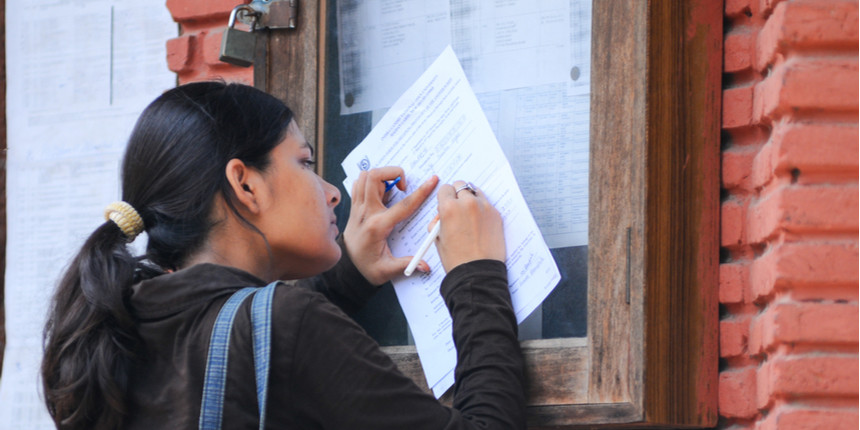S.No. | Unit | Detailed UGC NET Paper I Syllabus 2023 |
1 | Teaching Aptitude |
Teaching: Concept, Objectives, Levels of teaching (Memory, Understanding and Reflective), Characteristics and basic requirements.
Learner’s characteristics: Characteristics of adolescent and adult learners (Academic, Social, Emotional and Cognitive), Individual differences. Factors affecting teaching related to Teacher, Learner, Support material, Instructional facilities, Learning environment and Institution. Methods of teaching in Institutions of higher learning: Teacher centred vs. Learner-centred methods; Off-line vs. On-line methods (Swayam, Swayamprabha, MOOCs etc.). Teaching Support System: Traditional, Modern and ICT based. Evaluation Systems: Elements and Types of evaluation, Evaluation in Choice Based Credit System in Higher education, Computer-based testing, Innovations in evaluation systems.
|
2 | Research Aptitude |
Research: Meaning, Types, and Characteristics, Positivism and Post-positivist approach to research.
Methods of Research: Experimental, Descriptive, Historical, Qualitative and Quantitative methods. Steps of Research. Thesis and Article writing: Format and styles of referencing. Application of ICT in research. Research ethics.
|
3 | Comprehension | A passage of text is given. Questions will be asked from the passage to be answered. |
4 | Communication |
Communication: Meaning, types and characteristics of communication.
Effective communication: Verbal and Non-verbal, Inter-Cultural and group communications, Classroom communication. Barriers to effective communication. Mass-Media and Society.
|
5 | Mathematical Reasoning and Aptitude |
Types of reasoning.
Number series, Letter series, Codes and Relationships. Mathematical Aptitude (Fraction, Time & Distance, Ratio, Proportion and Percentage, Profit and Loss, Interest and Discounting, Averages etc.).
|
6 | Logical Reasoning |
Understanding the structure of arguments: argument forms, the structure of categorical propositions, Mood and Figure, Formal and Informal fallacies, Uses of language, Connotations and denotations of terms, Classical square of opposition.
Evaluating and distinguishing deductive and inductive reasoning. Analogies. Venn diagram: Simple and multiple uses for establishing the validity of arguments. Indian Logic: Means of knowledge. Pramanas: Pratyaksha (Perception), Anumana (Inference), Upamana (Comparison), Shabda (Verbal testimony), Arthapatti (Implication) and Anupalabddhi (Non-apprehension). Structure and kinds of Anumana (inference), Vyapti (invariable relation), Hetvabhasa (fallacies of inference).
|
7 | Data Interpretation |
Sources, acquisition and classification of Data.
Quantitative and Qualitative Data. Graphical representation (Bar-chart, Histograms, Pie-chart, Table-chart and Line-chart) and mapping of Data. Data Interpretation. Data and Governance.
|
8 | Information and Communication Technology (ICT) |
ICT: General abbreviations and terminology.
Basics of the Internet, Intranet, E-mail, Audio and Video-conferencing. Digital initiatives in higher education. ICT and Governance.
|
9 | People, Development and Environment |
Development and environment: Millennium development and Sustainable development goals.
Human and environment interaction: Anthropogenic activities and their impacts on the environment. Environmental issues: Local, Regional and Global; Air pollution, Water pollution, Soil pollution, Noise pollution, Waste (solid, liquid, biomedical, hazardous, electronic), Climate change and its Socio-Economic and Political dimensions. Impacts of pollutants on human health. Natural and energy resources: Solar, Wind, Soil, Hydro, Geothermal, Biomass, Nuclear and Forests. Natural hazards and disasters: Mitigation strategies. Environmental Protection Act (1986), National Action Plan on Climate Change, International agreements/efforts -Montreal Protocol, Rio Summit, Convention on Biodiversity, Kyoto Protocol, Paris Agreement, International Solar Alliance.
|
10 | Higher Education System |
Institutions of higher learning and education in ancient India.
Evolution of higher learning and research in Post Independence India. Oriental, Conventional and Non-conventional learning programmes in India. Professional, Technical and Skill-Based education. Value education and environmental education. Policies, Governance, and Administration.
|
